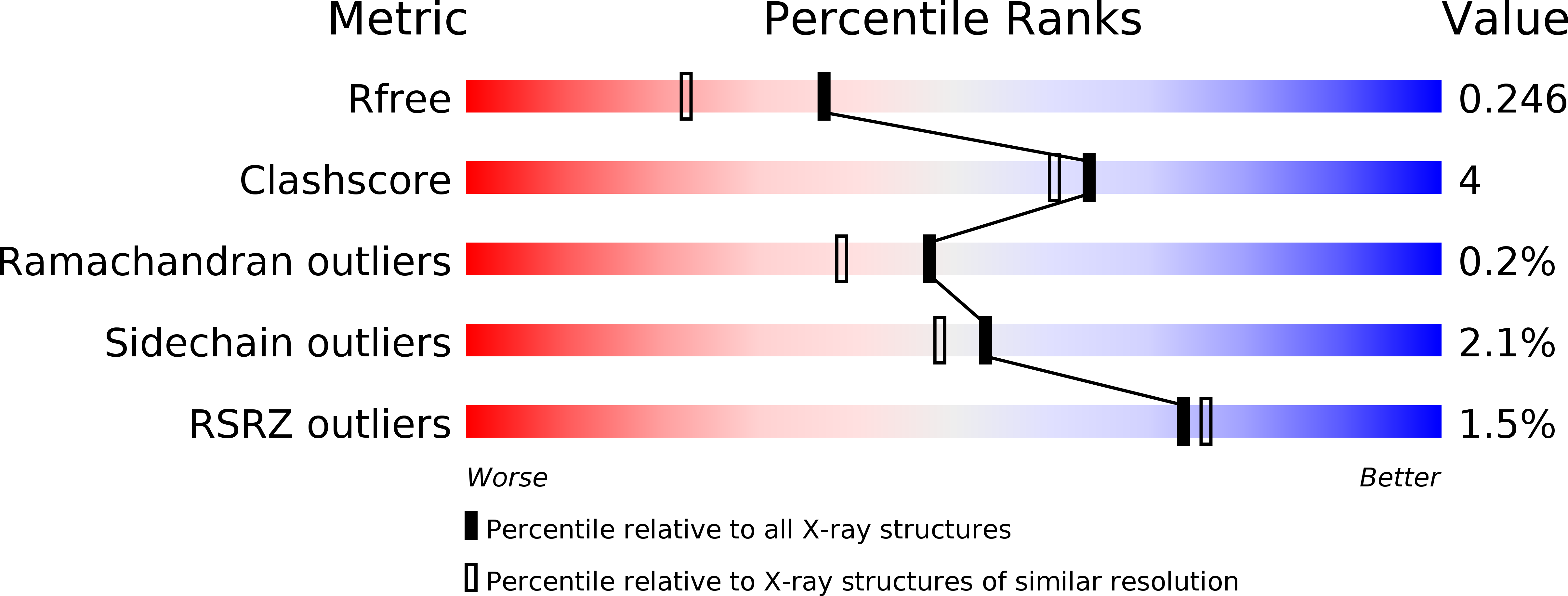Structural Basis for Binding of Fluorinated Glucose and Galactose to Trametes multicolor Pyranose 2-Oxidase Variants with Improved Galactose Conversion.
Tan, T.C., Spadiut, O., Gandini, R., Haltrich, D., Divne, C.(2014) PLoS One 9: e86736-e86736
- PubMed: 24466218
- DOI: https://doi.org/10.1371/journal.pone.0086736
- Primary Citation of Related Structures:
4MOE, 4MOF, 4MOG, 4MOH, 4MOI, 4MOJ, 4MOK, 4MOL, 4MOM, 4MOO, 4MOP, 4MOQ, 4MOR, 4MOS - PubMed Abstract:
Each year, about six million tons of lactose are generated from liquid whey as industrial byproduct, and optimally this large carbohydrate waste should be used for the production of value-added products. Trametes multicolor pyranose 2-oxidase (TmP2O) catalyzes the oxidation of various monosaccharides to the corresponding 2-keto sugars. Thus, a potential use of TmP2O is to convert the products from lactose hydrolysis, D-glucose and D-galactose, to more valuable products such as tagatose. Oxidation of glucose is however strongly favored over galactose, and oxidation of both substrates at more equal rates is desirable. Characterization of TmP2O variants (H450G, V546C, H450G/V546C) with improved D-galactose conversion has been given earlier, of which H450G displayed the best relative conversion between the substrates. To rationalize the changes in conversion rates, we have analyzed high-resolution crystal structures of the aforementioned mutants with bound 2- and 3-fluorinated glucose and galactose. Binding of glucose and galactose in the productive 2-oxidation binding mode is nearly identical in all mutants, suggesting that this binding mode is essentially unaffected by the mutations. For the competing glucose binding mode, enzyme variants carrying the H450G replacement stabilize glucose as the α-anomer in position for 3-oxidation. The backbone relaxation at position 450 allows the substrate-binding loop to fold tightly around the ligand. V546C however stabilize glucose as the β-anomer using an open loop conformation. Improved binding of galactose is enabled by subtle relaxation effects at key active-site backbone positions. The competing binding mode for galactose 2-oxidation by V546C stabilizes the β-anomer for oxidation at C1, whereas H450G variants stabilize the 3-oxidation binding mode of the galactose α-anomer. The present study provides a detailed description of binding modes that rationalize changes in the relative conversion rates of D-glucose and D-galactose and can be used to refine future enzyme designs for more efficient use of lactose-hydrolysis byproducts.
Organizational Affiliation:
Department of Medical Biochemistry and Biophysics, Karolinska Institute, Stockholm, Sweden.
















